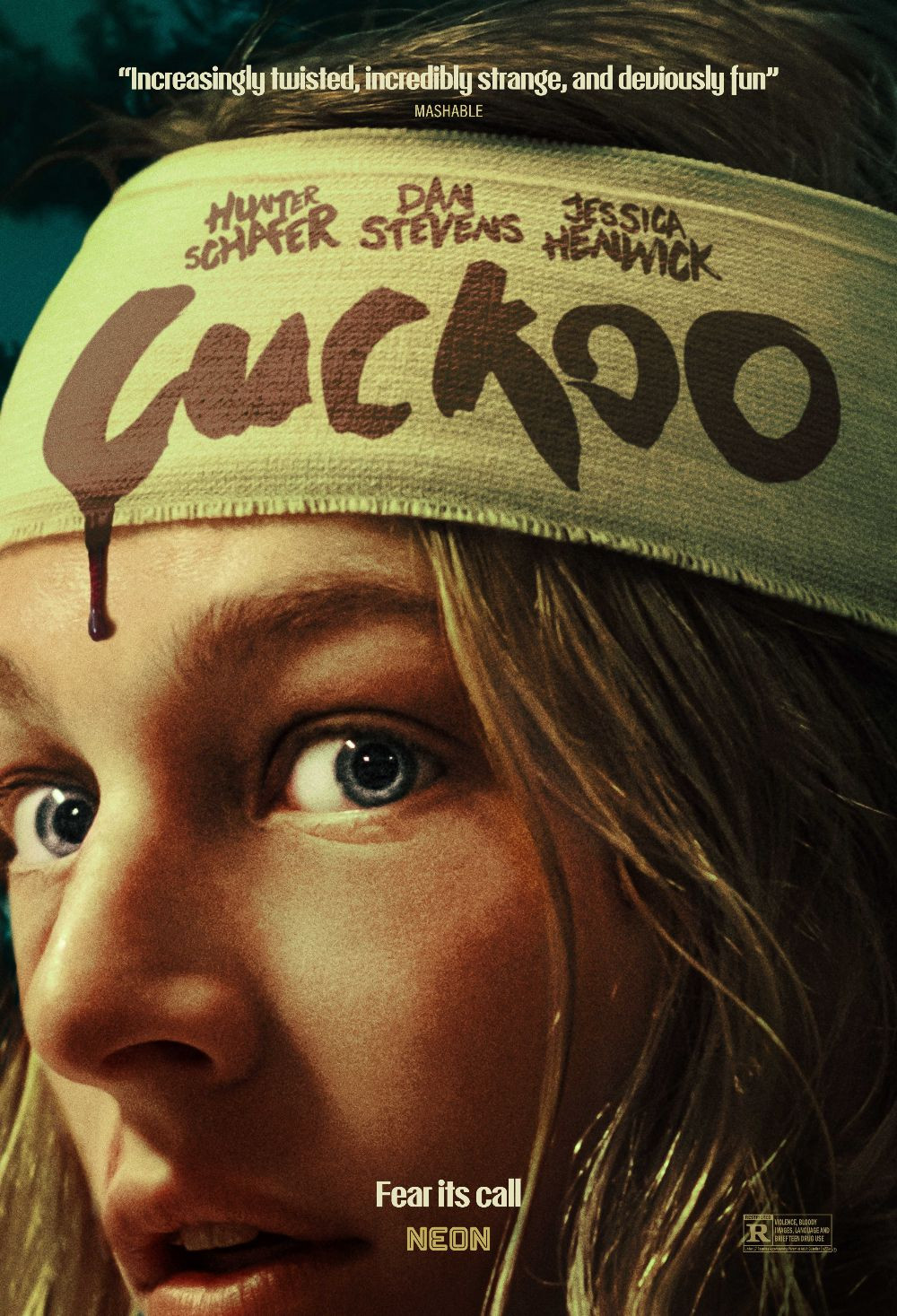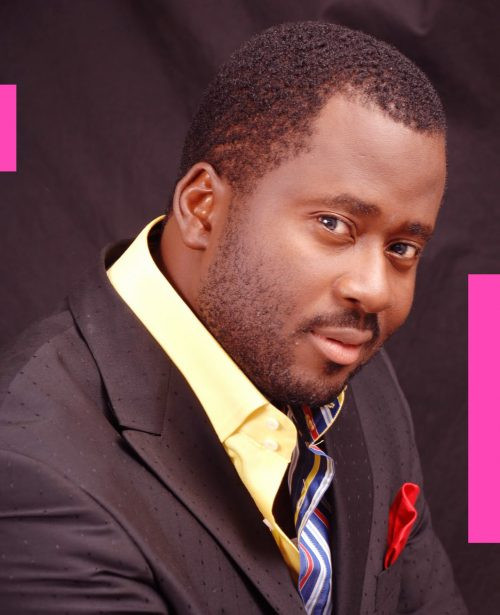Beyond the overdone gore of Saw, cheap jump scares of Insidious, or the freakiness of whatever's going on in Hellraiser, modern horror can do little to actually scare citizens of a horrible-enough modern world. In 2024, how much starchy corn-syrup blood can we see thrown at our screens? How many times can we be shown that evil people are out there, and still feel titillated — let alone unsettled?
Yet confronted with that hurdle and choosing to walk around it is Cuckoo, the latest release from relatively new filmmaker Tilman Singer, out Friday. Instead of bumping up into fear directly, this German American horror aims to unsettle you by simply being too confusing to stumble across without getting dizzy.
But it's not necessarily a bad strategy, and for fans of Dark, Germany's other famously convoluted time-bending tale, creating a freaky mood in general might be more important here than actually understanding what anyone is talking about.
Luckily, our most dependably straightforward character is also the lead: Gretchen (Euphoria's Hunter Schafer), a typically irascible teen dragged along on a vacation she had no intention of attending, from the U.S. to the German Alps.
But in this case, Gretchen's ire toward her family is more than well earned. Her travel companions include her father, who can't seem to help himself from both insulting and threatening her; her mute, preteen stepsister with demonstrably sharp nails; and her stepmother, who is generally unwanted.
There's also Gretchen's mysteriously missing birth mother, as well as the terrifying scarf-wearing woman wandering the village. And the local resort owner, Herr König, who not only looks and sounds like a Disney villain, but whose name appears to have been ripped straight out of Erlkönig, Johann Wolfgang von Goethe's poem about magic, children and sadness.
Taken together, it's like Cuckoo's thrown all the spooky confusing plot points it can in a pot and left them to cook.
Those ingredients are supercharged by the atmosphere. Singer manages to infuse the film with a sort of washed-out, fantastical light, which along with its 1980s-electronica-inspired score fills it with a sense of the uncanny all throughout. Paired with the genuinely fascinating mystery in our first half — built out of all those tantalizing horror threads — Cuckoo will have you leaning toward the screen in the first half, trying to work out what inventive secret could possibly weave them all neatly together.
Unfortunately, the only thing awaiting you would be a not-so-deft landing. As Cuckoo barrels through dark streets, brightly lit operating rooms and into the occasional nordic-minimalist dungeon, clear answers to any of the questions it's set up seem further and further from its audience.
What does become clear is this: These disparate elements weren't carefully selected for how surprisingly well they would fit together in the end. Instead, they are random jumping-off points, messily smashed together by increasingly frequent expositional speeches.
And since satisfying narrative thrusts are generally what keep audience members' eyes open in a dark room, the appropriately cuckoo plot will likely leave a few people snoozing by its end.
But Singer is talented at what he does — building a creepy world around a creepy set of events in a creepy atmosphere — so Cuckoo will be enough for many. Kyle Edward Ball's incredibly sparse Skinamarink already proved there's a dedicated cache of horror fans of films whose narratives are mostly implied, even through to the end. And millions of anime fans before them got through FLCL, a brilliant show actually famous for the fact that almost no one can tell what it's about.
The story that more or less flies out the window is still buttressed by strong acting all around — particularly Schafer's, whose alternately sullen and panicked performance grounds the film as an allegory of belonging and connection. And it's Schafer's commitment to the wild world in which Singer plants her that makes Cuckoo continue to work.
That's true even as the head-scratching reveals trip over each other to reveal an ultimate message that, in a more straightforward story, would probably be a little too sweet to swallow.
A film that takes more from its atmosphere than its plot
Cuckoo takes the form of a gothic thriller, playing on the theme of isolation and family. It also taps into the horror genre through its emphasis on blood and violence. Its storyline includes a large amount of suggestive material.
Cuckoo is a good movie for those who are looking for a disturbing and confusing experience. The film’s gothic horror elements are very well done, and the acting is solid. However, the film’s plot is confusing, and it leaves the audience with more questions than answers. If you’re looking for a horror film that makes sense, Cuckoo is not for you.
Cuckoo doesn’t know what it wants to be
Cuckoo feels like a movie that wants to say more than it does.
Themes of belonging, family and worth trace the edges of this thriller but never truly come to fruition. And perhaps it’s for the best that those themes are left as little more than hints. Because when the movie does start to unravel its secrets, well, the story just gets convoluted and over-the-top.
Instead, let’s focus on what is readily apparent: Though not as gory as your average slasher film, we do see a handful of people meet blood-soaked ends. Topics related to sex are directly relevant to the plot. Crude language stains our main character’s birdsong, and a hastily added LGBT romance ruffles feathers, too.
Cuckoo is certainly a little cuckoo. Yet it remains unable to fly due to its poor storyline—a film that becomes noticeably less thrilling when you figure out what’s going on.
Is Cuckoo worth watching?
Is Cuckoo an original story? Definitely. But that’s no reason to put all your eggs in its basket.
Or any of them, really.
Kennedy Unthank studied journalism at the University of Missouri. He knew he wanted to write for a living when he won a contest for “best fantasy story” while in the 4th grade. What he didn’t know at the time, however, was that he was the only person to submit a story. Regardless, the seed was planted. Kennedy collects and plays board games in his free time, and he loves to talk about biblical apologetics. He thinks the ending of Lost “wasn’t that bad.”

















